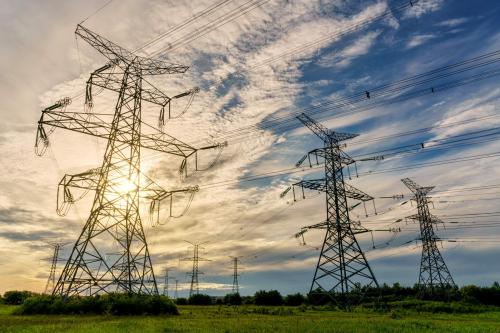The paper summarized here is part of the fall 2023 edition of the Brookings Papers on Economic Activity, the leading conference series and journal in economics for timely, cutting-edge research about real-world policy issues. Research findings are presented in a clear and accessible style to maximize their impact on economic understanding and policymaking. The editors are Brookings Nonresident Senior Fellows Janice Eberly and Jón Steinsson.
See the fall 2023 BPEA event page to watch paper presentations and read summaries of all the papers from this edition. Submit a proposal to present at a future BPEA conference here.
The German economy successfully adapted to the cut-off of natural gas from Russia last year, suggesting that Germany could have moved more swiftly to sanction Russia after it invaded Ukraine, according to a paper discussed at the Brookings Papers on Economic Activity (BPEA) conference on September 29.
After the invasion in February 2022, German political, business, and labor union leaders debated whether to embargo the import of Russian gas. Germany imported 55% of its gas from Russia at the time. Studies financed by affected business associations and unions warned that an embargo would produce a severe recession—spiking unemployment and a 6-12% plunge in Germany’s gross domestic product (GDP).
Less than two weeks after the invasion, the authors of the current paper, along with other co-authors, forecast a much smaller GDP decline of 1-3% if Germany was cut off from Russian gas.
Before Germany’s leaders acted on an embargo, Russia’s government-owned energy giant, Gazprom, reduced gas flowing through its Nord Stream 1 pipeline by 40% in June 2022 and halted the flow entirely at the end of August, driving natural gas prices to record levels in Europe. (The pipeline was then destroyed by an explosion in September.)
In their latest paper—”The Power of Substitution: The Great German Gas Debate in Retrospect”—the authors note that, despite a 20% drop in gas consumption, Germany’s GDP expanded by 2% in 2022. Its GDP did suffer a brief mini-recession, however, contracting 0.5% in the last quarter of 2022 and 0.1% in the first quarter of this year.
“Overall, while the German economy is stagnating and faces substantial long-run headwinds, the direct economic costs of the end of Russian energy imports proved moderate and manageable,” write Benjamin Moll of the London School of Economics; Moritz Schularick of the Kiel Institute for the World Economy, a research institute in Germany; and Georg Zachmann of Bruegel, a think tank in Belgium.
They attributed Germany’s success in coping with the gas cut-off to a combination of the adaptability of a market-based economy and policies that supported households and businesses while maintaining market price signals.
Instead of capping gas prices, which would have removed the incentive to reduce energy consumption or find alternative energy sources, the German government offset some the burden by providing monthly lump-sum payments to businesses and households, based on past gas consumption rather than current consumption. Also, Germany quickly found alternative sources by tapping into liquefied natural gas terminals in the Netherlands, Belgium, and France.
The authors conclude that, had Germany embargoed Russian gas at the end of March 2022, soon after the invasion, it would have had sufficient gas to get through the following winter. The failure to implement sanctions sooner, they write, “represents a major missed opportunity … to stand up to [Russian President Vladimir] Putin and help avert enormous human suffering in Ukraine.”
The authors write that Germany’s ability to adapt to the cut-off of Russian gas holds important lessons for similar cases in the future, such as China and Taiwan.
“Market economies have a tremendous ability to adapt that we should not underestimate again,” they write.
CITATION
Moll, Benjamin, Moritz Schularick, and Georg Zachmann. 2023. “The power of substitution: The Great German Gas debate in retrospect.” BPEA Conference Draft, Fall.
-
Acknowledgements and disclosures
The authors did not receive financial support from any firm or person for this article or from any firm or person with a financial or political interest in this article. The authors are not currently an officer, director, or board member of any organization with a financial or political interest in this article.
David Skidmore authored the summary language for this paper. Chris Miller assisted with data visualization.






